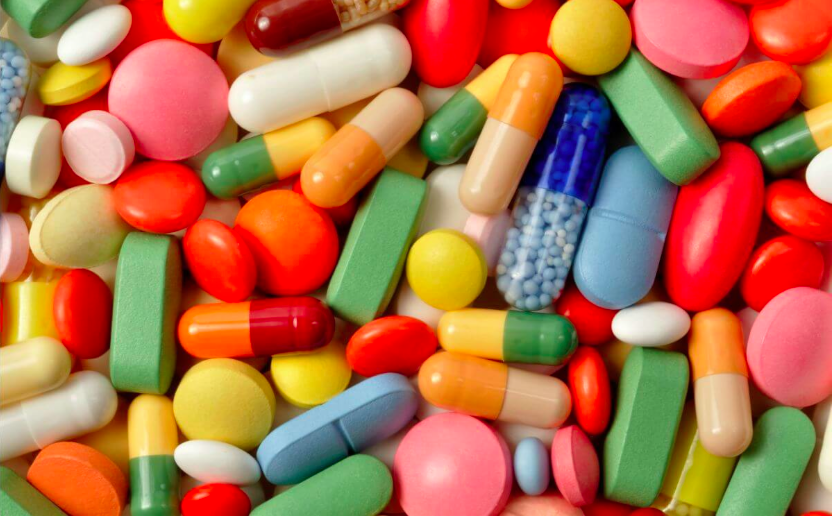Let’s talk about some of the big causes of adrenal fatigue and how you can defeat them. First, we will talk about your adrenal, some common adrenal fatigue symptoms (otherwise known as adrenal dysfunction symptoms) and answer some of the top questions on the subject.
- Have any questions?
- 480-631-7837
- support@in-goodhealth.com

Chicken, Sweet Potato and Kale Stew
June 9, 2023
The Best Supplements for Hashimotos, Natural Treatment Diet and Nutrition
June 12, 2023
Chicken, Sweet Potato and Kale Stew
June 9, 2023
The Best Supplements for Hashimotos, Natural Treatment Diet and Nutrition
June 12, 2023Recommended Product: Adrenal Energy is a nutritional blend to safely improve fatigue symptoms in those with thyroid disease. Fatigue is one of the top complaints of people with thyroid disease. It can manifest as low energy, poor mental function, and a lack of exercise tolerance. Click Here
What are the Adrenals?
So, what are we dealing with here? Your body has this system of regulating its main actions, which we call the autonomic nervous system. There are two “gears” in that system which we can understand as:
- Your fight-or-flight response
- Your feed-and-breed response
First, you have a mode of activating your body to get through difficult moments and a mode of fixing it all up afterward. What we want is a good balance between those two responses.
All of this stuff about adrenal fatigue is about that balance being out of whack. It’s a real problem for a lot of people. We know it is there, and we expect it to be a big cause for suffering from:
- Fatigue
- Poor sleep
- Issues with circadian rhythm
- Abnormal blood pressure
- Strong cravings for salty or sugary food
Causes of Adrenal Fatigue
One of the biggest causes of adrenal fatigue are what we call “chronic stressors.” We can see stress as moments when someone cuts us off or is rude to us, but it goes even deeper than that. The first thing I want to talk about is “historical stress.”
This is the idea that the negative experiences we have in childhood can cause our fight-or-flight response to kick in faster than what would otherwise be normal. This idea is based on something called our adverse childhood experience (ACE) scores.
Key Insight: Our ACE scores not only make it easier to fall into this fight-or-flight mode, but it also makes it more difficult to escape it, too.
Other factors include the total load of mental and emotional stressors. This includes how bad any one stressor is, how many total stressors there are, and how long they have been going on. All of these things are cumulative.
Stress is a big one, but there are others at play. One factor might be an irregular schedule. The adrenals control how our body’s daily rhythm works. If we are sleeping and eating at different times, day to day, that makes it harder for your adrenals.
Along those same lines, poor blood sugar regulation can also be a factor. If we have poor glucose regulation, we may be putting ourselves at additional risk.
AD vs. Adrenal Fatigue
I want to quickly hit pause here and make a key distinction. Let’s talk about what is really happening in your body and if we should really be calling it “adrenal fatigue.”
The most accessible term, in my view, is “adrenal dysfunction.” The fatigue word implies that your adrenals are worn out or tired, that they have worked hard and are now weak.
One problem is that, in many of these cases, adrenals are overproducing stress hormone and not underproducing it.
When they are underproducing it, it is almost always because they are choosing to (and not because they no longer can). This is a really important difference.
Key Insight: In cases of adrenal dysfunction, the whole system (that includes the adrenals) is choosing to slow the body down and force a time of rest and recovery.
There are different situations, which are rare, in which the adrenals are closer to broken. In these cases, they simply cannot make cortisol or hormones. If that’s the case, there are solutions, but that is not what is happening in the case of adrenal dysfunction.
In a state of adrenal dysfunction, your adrenals are:
- Making too much
- Making it at the wrong time
- Not making it on purposes
For this reason, the strategies are completely different. Let’s dive a bit into how you can heal your adrenals the right way, especially when they are in a state of dysfunction…
How Can I Heal My Adrenals?

The things that help with adrenal dysfunction are things that allow for less strain on your adrenals. These things allow your body to rest and heal properly.
Let me explain each in a bit more detail…
1. Stress
The first thing to think about is total stress. The first question to ask yourself is: How much stress are you taking on in your life? How important is all of it?
In some situations, it really is amazing how much you can clear from your schedule. It might make sense to push a lot of things to the sidelines to deal with stress.
Other things that can help include parasympathetic exercises. These can include breathing exercises, muscular tension exercises, or more.
Key Insight: Essentially, what you want are recurrent and consistent exercises. You will want to set time aside to really focus solely on helping your body go into that reparative mode.
One exercise I want to mention is alternate nostril control. This is essentially where you focus energy on breathing in and out of specific nostrils.
Inhale on a count of one in your right nostril, hold your breath on a count of four, and exhale on a count of two through your left nostril. And, then, do the opposite!
You can do that for as little as three minutes. When you make a deliberate rhythm like this, you help your body move back into that relaxation state.
2. Glucose
The more steady your blood sugar, the less you have to make stress hormones to chase your blood sugar (to make it balanced).
So, how do you go about doing that? There is an inverse relationship between dietary carbohydrate and cortisol.
That means that healthy carbs allow your body to lower cortisol. You do not need to make cortisol to form glucose out of your muscle tissue, when there is already some glucose coming from good foods in your system.
Healthy carbs and unhealthy carbs are, to be frank, worlds apart. People may still feel that carbohydrates are inherently bad, but this simply isn’t the case.
Key Insight: The difference between a plate of lentils and a slice of white bread are not in the same food category. It is not at all meaningful to think about them in the same way.
Especially in the evening, if we have too little carbohydrate, our body needs to make more cortisol to raise blood sugar and keep it up throughout the night. That fights against our attempts to sleep.
3. Electrolytes
The adrenals also control the intake of sodium and the excretion of potassium throughout the body. As such, they govern the electrolyte balance throughout the cells.
We want to consume adequate amounts of electrolytes. It is generally easy to get enough sodium, so we want to make sure we are getting the right amounts.
Key Insight: Don’t be afraid of salt, but don’t feel like it is a magic tonic. You want to ensure that you are getting adequate but not excessive levels of salt.
On the other hand, we often get too little potassium in our bodies. Our requirements for it are somewhere between 3000-7000 mg per day. Whereas we only need around 1000-2000 mg of sodium in our diets.
Any fruit or vegetable you can think of is a fairly rich source of potassium (and not just bananas). You want somewhere between 5-10 good-sized servings throughout the day.
4. Circadian Rhythm
The adrenals are also in control of the body’s circadian rhythm. The more consistent and regular your rhythm, the less they have to do to push it back on track.
When you sleep, when you eat, when you go outside, try and ritualize these things. You need to keep a really strong schedule.
5. Inflammation
The adrenals also make hormones that govern our body’s inflammatory response. Glucocorticoids even act as anti-inflammatories.
The more we can do with dietary anti-inflammatories, the less we need cortisol for regulating inflammation.
The main anti-inflammatory foods in the diet include:
- Berries
- Green tea
- Dark leafy greens
- Intact whole grains (brown rice, buckwheat)
- Legumes (black beans, pinto beans, navy beans)
- Dietary fats like Omega-3 (seafood like salmon and shrimp, flax oil)
- Omega-6 fats (walnuts, sunflower seeds)
Consider enjoying some more of these anti-inflammatory foods in your diet!
Healing Your Adrenal Dysfunction
Overall, the more we can take the strain off our adrenals, the more we can help them regulate the things they truly need to regulate. Then, we can help them recover even faster!
Do you need help with your hormones? If you are stressed about your cortisol levels or potentially adrenal dysfunction, click here to schedule a discovery call with an expert. We’d love to have a chat to get to know you a bit better and to help you out.

P.S. Whenever you are ready, here is how I can help you now:
- Schedule a Thyroid Second Opinion with me, Dr. C, Click Here for Details
- Need help to choose supplements? Click ‘Help Me Decide Here'
- Get my top books Here
Dr. Alan Glen Christianson (Dr. C) is a Naturopathic Endocrinologist and the author of The NY Times bestselling Hormone Healing Cookbook, The Metabolism Reset Diet, and The Thyroid Reset Diet.
Dr. C’s gift for figuring out what works has helped hundreds of thousands reverse thyroid disease, heal their adrenals, and lose weight naturally. Learn more about the surprising story that started his quest.







